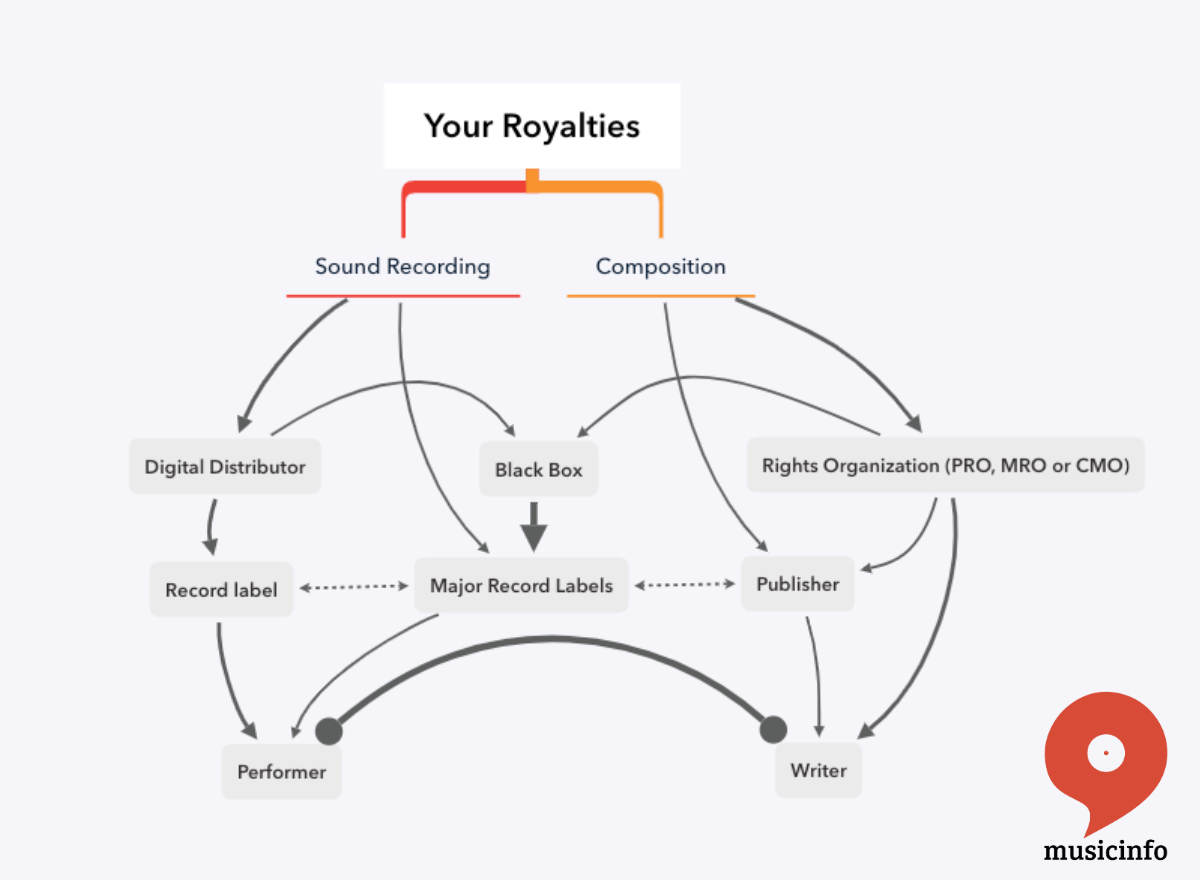
Did you know that 20-50% of all royalties generated never make it to artists and song-writers and that there can be nearly 900,000 sources from the usage of your music. There is an unfortunate amount of unattributable payments due to incorrect licensing information or a lack of knowledge of who to pay. The purpose of the complexity of the royalty chain is so that royalties end up in the “black box of royalties.” And the ones who have the most invested hold the biggest claim to the royalties that end up in that black box.
Today's music business is a dense, often convoluted landscape of revenue streams. You have to be on top of things to make sure you get all your royalties. Thankfully, you aren't on your own. As an independent artist, it is imperative that you claim your royalties not only for your own pocket but also to take it away from those who support this current system of misinformation.
To find out what royalties are available to you, we have to start by determining if you're a songwriter, an artist, or both. The distinction between artist and songwriter is essential because there are royalties specifically for artists, and there are royalties specifically for songwriters. The complicated part is that a lot of us are both, or use these terms interchangeably.
If you are a songwriter you are interested in Performance Royalties as they pertain to the composition of a song
If you are an Artist (performer) you are interested in the Master Royalties and Neighboring royalties as they pertain to the sound recording of the song.
One important point to make is the difference in how royalties are collected and paid inside and outside of the USA. It is important because the USA is one of the biggest music markets yet has a different set of laws. The USA does not recognize Neighboring Rights, so when a song is broad casted on the radio the radio station only pays for the use of the composition to the writers, not the sound recording to the performers.
Also, if you distribute a cover song digitally in the USA you need to purchase a license to do so. You would then be required to pay additional licensing fees depending on the amount your cover song has been played. Whereas in most countries outside of the USA the DSP supplies these licenses as a part of their service and pays the Performance Rights Organization the country accordingly.
This makes it complicated because almost every country outside of the USA follows the same standards, particularly the other biggest music markets of Europe and Asia.
The conventions that have been established to help standardize and govern the rights of music and the collection of royalties are in the most part have been signed and agreed upon by most countries. There are many emerging countries whose industry standards are at a different level, due to lack of infrastructure or historical culture towards copyrights.
China is a notable force in the music industry holding now the 5th position behind: the USA, Japan, the UK and Germany. The developments in China are staggering in the pace in which the market has established itself, however the infrastructure is still wanting. There is a PRO in China however it is not firmly established in the collection of royalties or with its counterparts abroad. So even though your PRO or Publishing Admin may be “collecting” from China, the majority of the royalties are still being collected by the DSPs. In this respect to collect your royalties (master and publishing) from China you need to distribute your music so the DSPs will be able to connect the usage of your content and pay the royalties to you.
If you are a song-writer you are entitled to claim royalties that pertain to the composition of the song, melody and lyrics, when your song has been recorded and played back or live. Performance “Composition” royalties (a.k.a., public performance royalties) are generated when a song is performed in public: On stage, on a jukebox, in a store, on a TV show, on the radio (AM, FM, Pandora, Sirius XM, etc.), or on Spotify, Apple Music, or YouTube.
To collect your performance royalties you need to sign up to a Performance Rights Organization (PRO). For the plays of your song. Nearly every country has at least one PRO, and they are the ones who will collect the royalties generated from within their own country. Most are not for profit so it doesn’t cost anything to become a member.
To collect your mechanical royalties you need to sign up to a Mechanical Rights Organization (MRO). For downloads, streams and covers of your song. They work similar to PROs but only deal with mechanical royalties.
Many PROs also collect Mechanical royalties and they are named Collective Management Organizations (CMO).
Most of the PROs in the counties of established music markets outside of the USA; Germany (GEMA), France (SACEM), Japan (JASRAC), and the UK (PRS), etc., are in fact CMOs and collect both performing and mechanical royalties.
Once you are a member you would need to register your songs that you have distributed. They will then track the usage of your music and pay you. They will not pay for unregistered songs and there is a limit on how far back they will pay you if your song has been played in the years before your membership.
The PRO will automatically split the royalties 50/50 for songwriters and publishers. If you do not have a music publisher, you do not have to miss out on the publisher's share. Your PRO can pay you 100% — both the songwriter's 50% and the publisher's 50%. You need to register yourself as a publisher from your PRO and then register your music with you as the publisher.
PROs only collect from their own country, however they have set up partnerships with other PROs across borders to pay and receive publishing royalties to artists of their own and other countries. Many of the biggest PROs are partnered together so you can be sure that when your song is played abroad that those royalties will be collected by your home country PRO. However not all PROs are partnered together so you will need to be diligent and know in which country your music is being played and that your PRO is collecting royalties from that country. If not you will need to apply to the PRO of that country to be eligible to collect royalties from that country.
It is good to keep track of the countries your music is getting the most plays and know if your PRO is collecting from that country.
The reason you would follow this method is that many of the PROs are non-profit, so it may be more affordable for you to collect royalties this way. The other way or even to supplement your membership with your PRO is to sign up to a Publishing Admin company. They have agreements with PROs, CMOs and MROs all over the world to collect royalties from an extensive amount of territories. They could have better coverage and also offer other services that may be beneficial to your royalty management. They, however, are most often a pay per service and although may be more convenient, may not be completely necessary or within the budget for the self-publishing musician.
Sign up with a digital distribution company. All the usage of your music on a Digital Service Provider (DSP) streaming or otherwise will be paid to your distribution company and then to you.
In the USA you will need to sign up to SoundExchange which collects digital sound recording performance royalties from non-interactive streaming services (internet radio).
The USA doesn’t recognize neighboring rights and therefore does not pay neighboring royalties (sound recording) for music broadcasted on radio, they only pay publishing royalties (composition) which can be collected by a PRO (BMI, ASCAP or SESAC). Countries outside of the USA pay for neighboring royalties and publishing royalties, but they only pay the American song-writers publishing royalties. These neighboring royalties are anyways collected from the DSPs which end up in the “black box”, usually paid out and kept by the record label who owns the license of the song. Some American artists have gone as far as recording their music in international waters to be able to claim these royalties when their music is aired on international radio.
This is a specific license to use your music in synchronization with visual media: TV, movies, ads, etc. For a typical production your music is licensed to be used with a specific visual production or project. The license covers both the publishing and master and is paid to the licensor who would then pay the label or rights holder. Other sync possibilities are micro-sync-licensing which makes your music available to a much wider audience like digital downloads, however your song is downloaded and licensed to be used with a specific project. It would require a new license for every new project and returns a substantially bigger sum. Sync-license agreements would not generate royalties as the purchase of the license defines the total usage and cost.
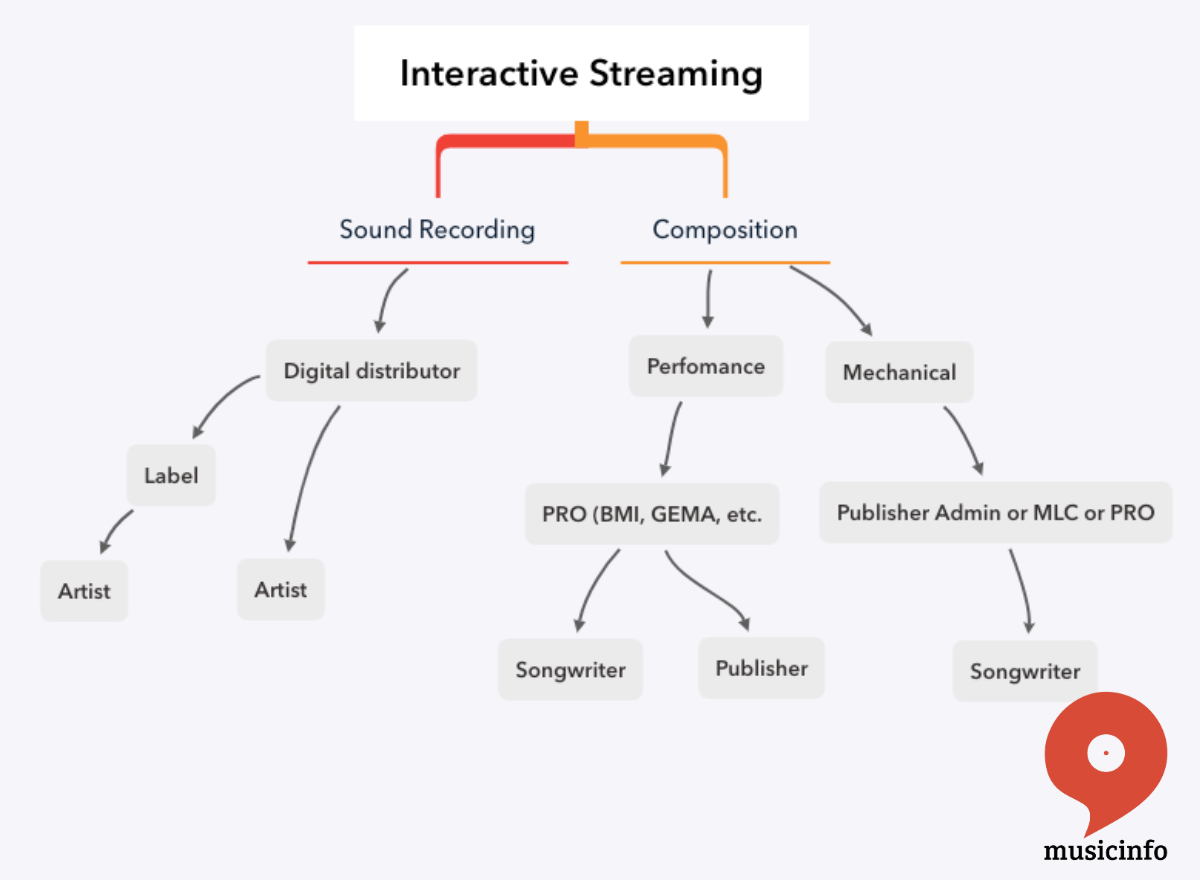
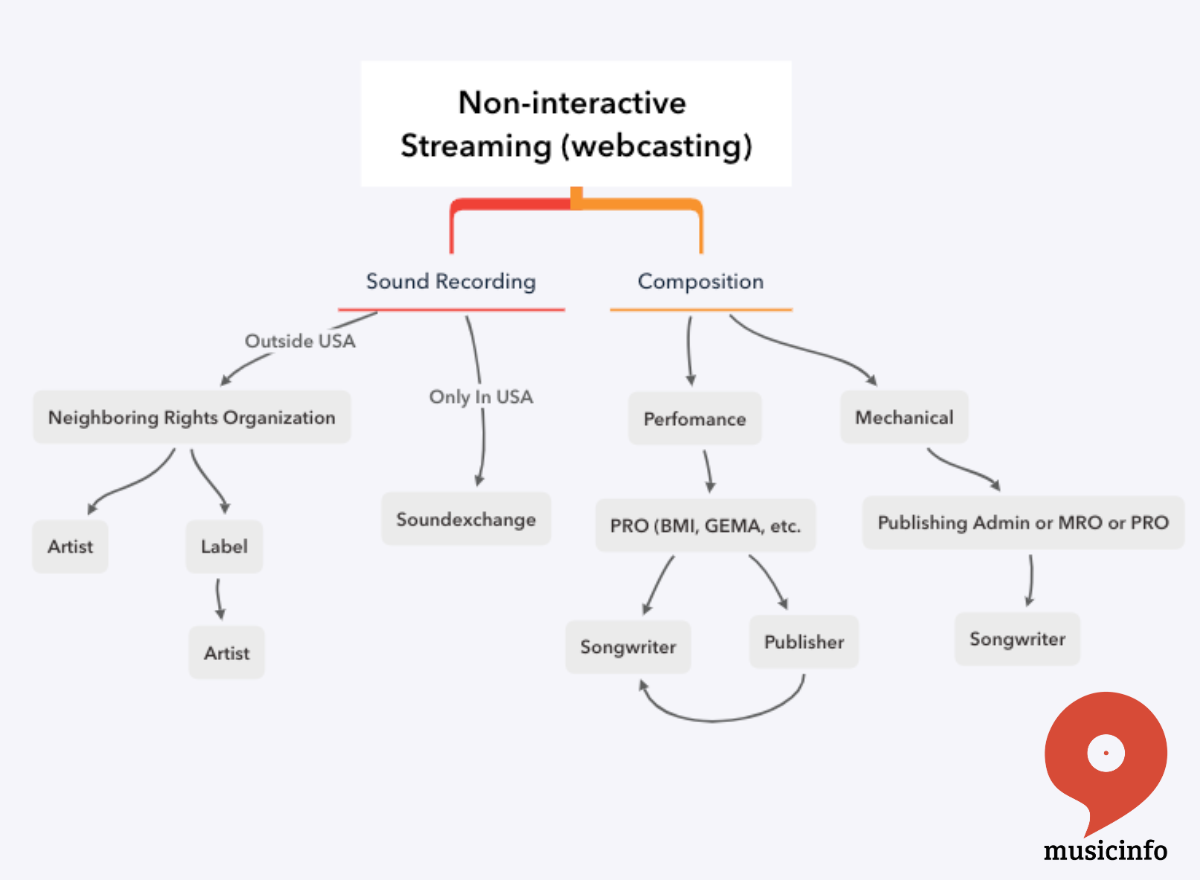
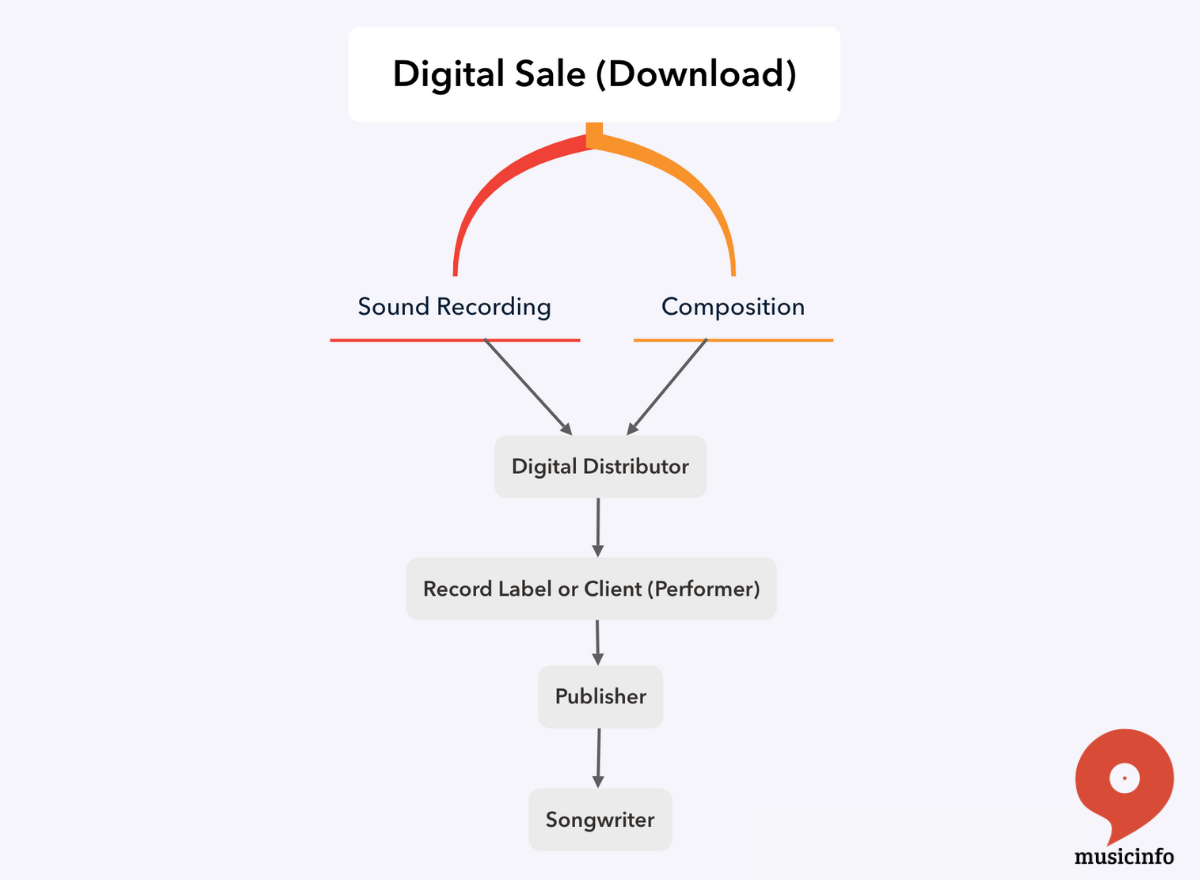
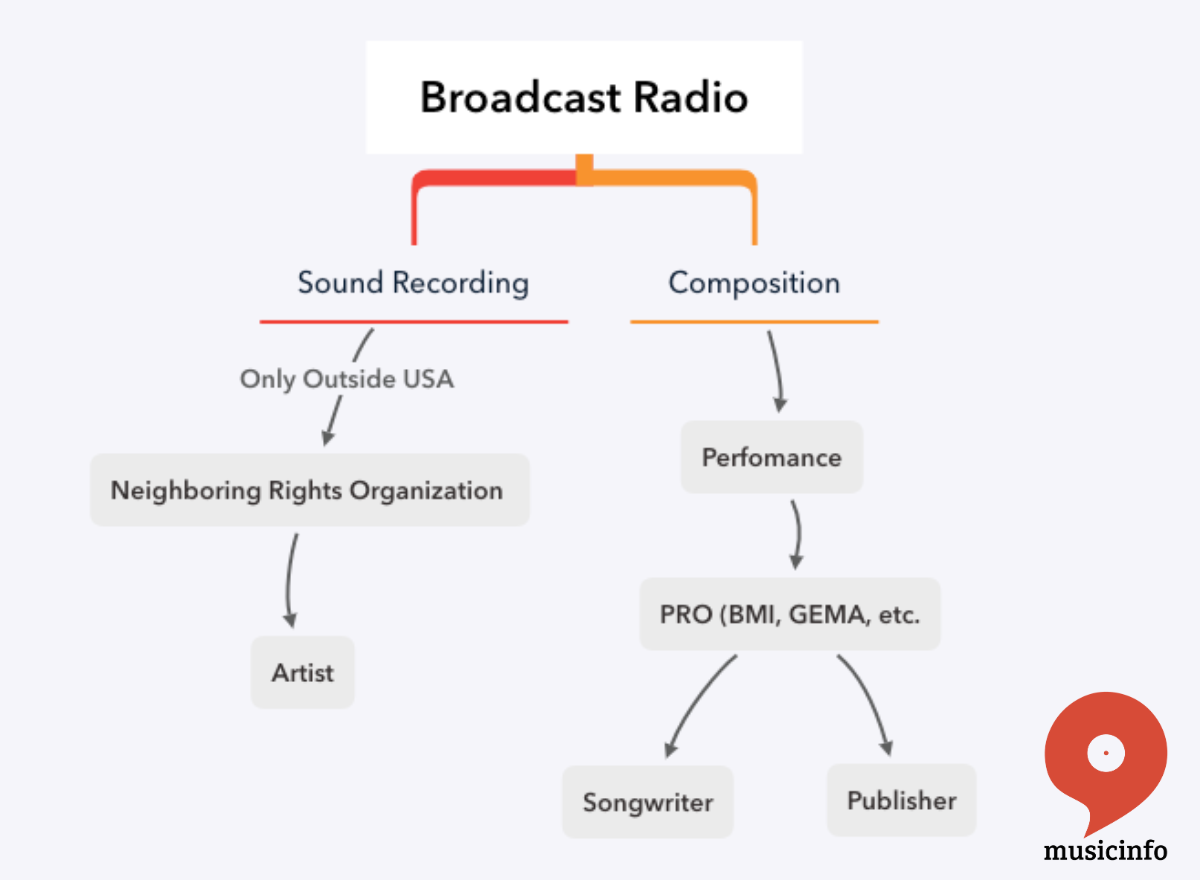
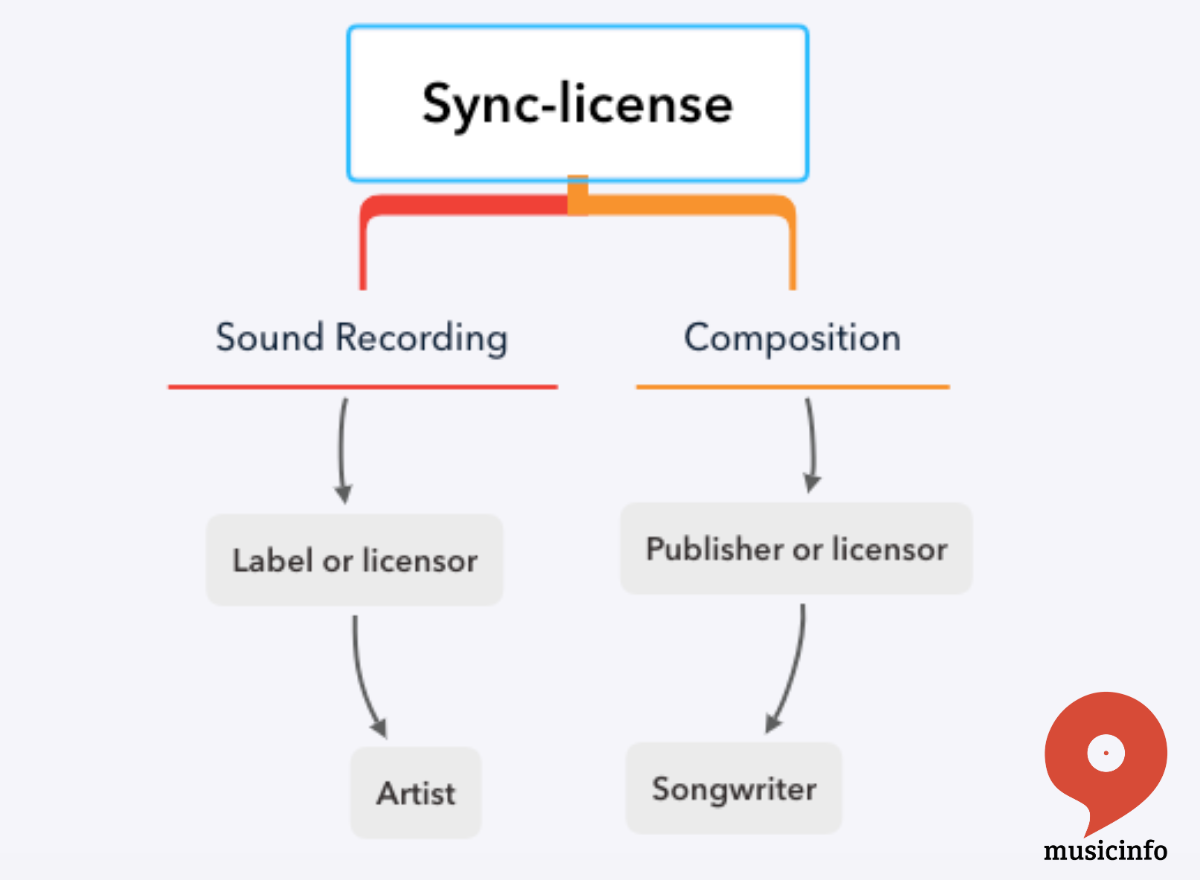
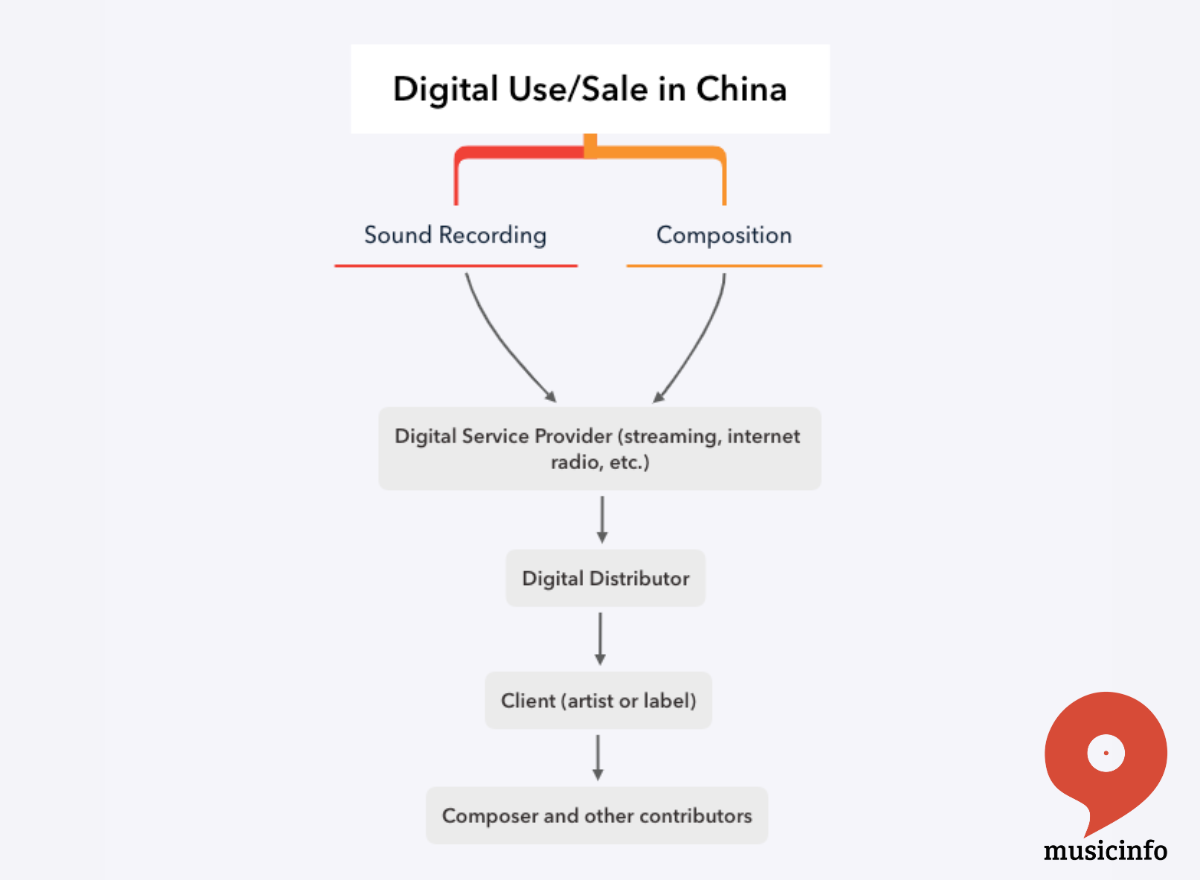
Although royalty collection can be confusing it is not endless. There are other sources of digital music royalties such as from standalone lyrics or even voiceover but the return from these sources are often tiny to the amount it costs or the time involved to get them. So distribute your music, sign up to your local PRO and consider a Publishing Admin service, this way you will be at least getting the royalties that are possible to get.
Black Box – The place that all unclaimed royalties go. When a song is used royalties are collected but there are many reasons why it is not possible to pay those royalties to the musicians: Law and legislation across territories prevent royalties to be paid to artists abroad; The usage of content may not be properly tracked; Musicians simply are not aware of how to claim their royalties. These royalties then get paid to the ones who have the biggest claim in the market.
Broadcast radio – good old AM/FM radio, via radio waves.
Collective Management Organization (CMO) – Collects for both Performance rights and mechanical rights.
Composition – the song: underlying melody and music, and lyrics, governed by publishing rights.
Digital Service Provider (DSP) – Any service that makes your music available digitally for their audiences to use or listen to, and may be interactive as in streaming services like Spotify, or non-interactive such as internet radio stations like Tunein.
Master rights – The rights to the usage of the sound recording.
Mechanical rights – The rights to the usage of the reproduction of the composition, such as in cover songs, physical distribution, and streaming.
Mechanical Rights Organization (MRO) – Collects for Mechanical Rights, the usage of the reproduction of the composition, in streaming or downloads. DSPs require a mandatory mechanical license to stream (reproduce) or for downloads.
Neighboring rights – Are the royalties generated from public performance or broadcasting of sound recordings on non-interactive digital services (internet or satellite radio), terrestrial radio, television, cable music channels, cinemas, public spaces, and businesses.
Performance Rights Organization (PRO) – Collects for songwriters and publishers (Composition).
Performance rights – when a song is played and used, listened to. It covers the composition. This includes all forms of music usage when played back from a recording or in a live performance.
Royalty – the recurring payment made to the rights holders of a song.
Sound recording – the recorded sound by the performers and artists of the composition, this is also known as “the master”.
SoundExchange – collects Performance royalties for digital non-interactive streaming (webcast – digital radio – satellite radio) from the USA and Internationally. Its main customer base are US citizens, but it is also possible to become a member from abroad. The USA doesn’t recognize neighboring rights and therefore does not pay master rights for music broadcasted on radio.
Webcast – non-interactive form of content provided by a digital service.
CVR FI24789448 | © Musicinfo 2026 | All rights reserved.